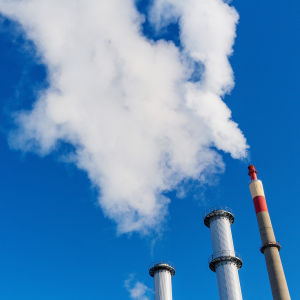With the release of the Clean Power Plan earlier this week (Monday, Aug. 3), the U.S. took a landmark step toward leveling the playing field among renewable and fossil fuel energy sources that will be powering our homes and businesses for decades to come. Wind and solar energy, for example, will now be allowed to compete more fairly with coal, whose high external costs – including carbon pollution, respiratory illness and premature deaths – have long been overlooked or ignored.
Yet, even with the Clean Power Plan in place, little-known federal policies and subsidies at the Department of the Interior will continue to tilt U.S. energy markets in favor of coal.
Forty percent of U.S. coal is mined on national forests and other public lands owned by American taxpayers, 90 percent of which is dug from sprawling strip mines in the Powder River Basin in Wyoming and Montana.
With the help of federal subsidies and low federal royalty rates, some of the world’s largest coal companies have been expanding their holdings of public lands in the Powder River Basin and flooding U.S. and international energy markets with discounted and subsidized coal. Federal coal from the Powder River Basin can undercut the price of competing coal sources and other fuel supplies as far away as Florida and China. This federal coal is so widely burned that it now accounts for one-tenth of U.S. greenhouse gas pollution — a share that could well increase in the coming years.
There is no reason coal should get a special deal on America’s public lands.
The fact is, in addition to special breaks — including subsidies for washing and transporting their own product — coal companies that are mining on federal lands pay substantially lower royalty rates than companies that drill for oil and gas in federal waters.
What’s more, independent investigations have found that companies are exploiting a loophole by selling coal to their own subsidiaries at discounted rates and then paying a royalty on that artificially low price. It is a trick that is unethical and should be made illegal. A new bill from Sen. Ron Wyden of Oregon, Sen. Tom Udall of New Mexico, and Rep. Matt Cartwright of Pennsylvania would do just that.
All these outdated policies come at a high cost to taxpayers: By one estimate, taxpayers would be collecting up to $1 billion per year in additional revenue if coal companies were to simply pay a royalty on the true market value of the coal they sell to power plants, without all the subsidies and loopholes.
And it isn’t just taxpayers nationally who are getting a raw deal, but local communities as well. The state of Wyoming, for example, would be able to offer free college tuition to every one of its students if the federal government were to collect what is actually owed to the state and its citizens from mining in the Powder River Basin. The savings from closing loopholes and cutting subsidies in the federal coal program could also be invested to help struggling coal communities in Appalachian states diversify their economies, retrain workers and create new opportunities.
The coal industry and its allies, of course, fiercely object to any changes that would level their competition with other American energy sources. An army of coal industry front-groups, lawyers, and multi-million dollar television ads are attacking the Clean Power Plan and its supporters with false claims and fear mongering. A coal industry lobbyist told Secretary of the Interior Sally Jewell last week that there is no reason to modernize or reform anything because “the federal coal program is a tremendous success story.”
The federal coal program has indeed been a boon for the world’s biggest coal companies, but from the perspective of American taxpayers and our nation’s interests, it’s an undisputed boondoggle. Taxpayers deserve a fair share from coal mining on public lands; it’s far past time to modernize an outdated program, end coal subsidies, and require that everyone play by the same rules.

